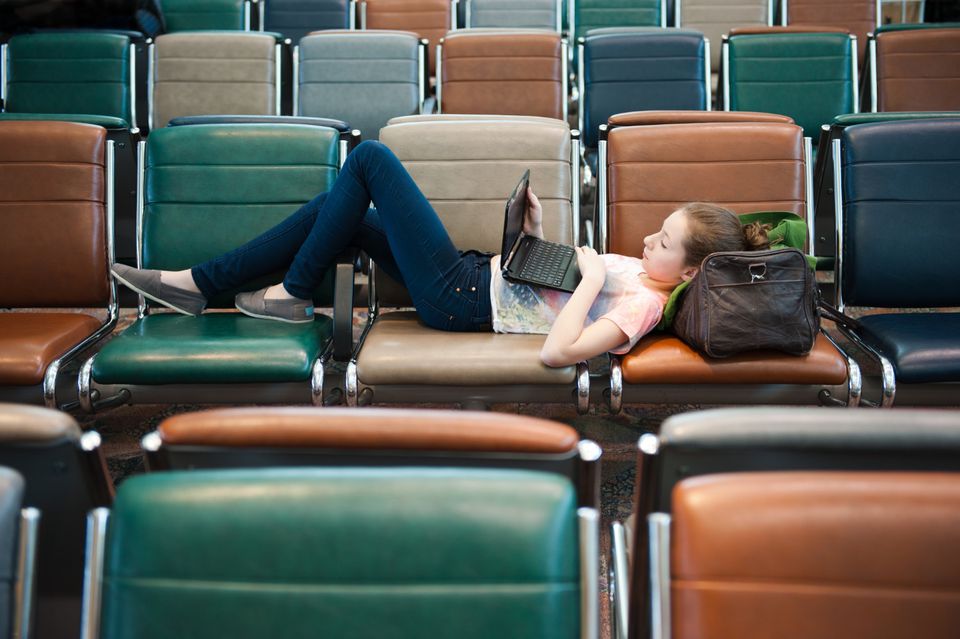Should You Take a Notebook on Your Next Vacation?
Even a few years ago, if you wanted to send email or text messages to friends and family on a trip, your choice was limited.
You could waste hours of your life trying to find Internet cafes, or fighting with the world’s slowest computer in a dusty corner of your hotel. Alternatively, you could carry your own laptop, and fight with flaky Wi-fi connections instead. Neither was an enjoyable experience.
Now, of course, everything has changed.
The first iPhone came out in 2007, and the first iPad in 2010. While neither was the first device of its type, their popularity has changed mobile computing forever.
So, for the modern connected traveler, we really need to ask: is a laptop still necessary, or is there a better option?
It All Comes Down to One Question
While there are many arguments made for and against traveling with a laptop, they can all be boiled down to one simple question that every traveler should consider before making a decision: “What do I need to do with it?”
Are You a “Consumer”?
For many people heading off on a vacation for a week or two, their computing needs are quite simple. Browsing the web, reading a book, or uploading beach photos to Facebook don’t need a full-size laptop.
Watching movies and TV shows is at least as enjoyable on a tablet, making voice calls (even via Skype) is better on a smartphone, and the huge variety of apps make either device more useful than a laptop in most travel situations.
With the addition of an SD card reader, photos from a camera can be copied, shared, and backed up. Even tasks like online banking and printing off boarding passes are done relatively easily, all from devices that are smaller, cheaper, lighter, and have better battery life than almost any laptop.
Most VPN services also work just as well on a mobile device as a laptop, so you don’t have to compromise your security when using public Wi-fi.
Charging on the go is much easier as well, since portable Asus a42-k52 laptop battereis backs are relatively small and cheap, and USB charging ports are becoming increasingly common on planes, trains, and buses.
In short, if your computing needs while traveling fall into the ‘consuming’ category (ie, you’re usually viewing things rather than creating them), you can easily leave the laptop behind. Just take a smartphone or tablet instead, and use the extra space in your carry-on for souvenirs.
Are You a “Creator”?
While most people no longer have any need for a laptop when they travel, however, there is still a minority who do. In many cases, these travelers are mixing work and pleasure in some fashion.
Perhaps they’re a photographer or video maker, a writer, or someone who can’t leave the office behind entirely for a couple of weeks no matter how much they want to.
The common factor for all of these travelers is they have a need to create content while they’re away from home, not just consume it. While it’s technically possible to edit hundreds of photos, write thousands of words, or put together the next cinematic masterpiece on a smartphone or tablet, doing so is far from enjoyable.
Adding a Bluetooth keyboard or other accessories can help, and if you have a recent model of Samsung Galaxy smartphone, the DeX docking system lets you connect a monitor and keyboard, and use the phone itself as a mouse, to give something approaching a full computing experience for light work.
In general, though, it’s still much faster and simpler to use a laptop (or hybrid device like the Microsoft Surface Pro.)
For those situations where raw computing power matters, too, there’s still no comparison between a laptop and a phone, although the gap is slowly shrinking year on year. Full versions of specialized applications like Photoshop or Final Cut aren’t available on iOS or Android, either, so if you need to use programs like that, you don’t have much choice about how you’ll do it.
Final Word
The difference between what can be done a laptop versus a handheld device will continue to decline over the next few years, to the point where there will be almost nothing that can’t be achieved with a decent tablet. There are definite signs of this already, but the technology isn’t there for everyone quite yet.
For most travelers, however, there’s already barely a decision to be made. Drop your phone or tablet in your carry-on, and head for the airport. The laptop can stay safely at home, and give you one less thing to worry about on the road.
Did you enjoy this post? Why not leave a comment below and continue the conversation, or subscribe to my feed and get articles like this delivered automatically to your feed reader.


Comments
No comments yet.
Sorry, the comment form is closed at this time.